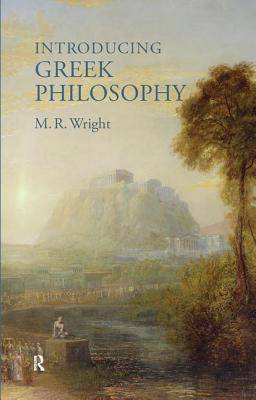
- Afhalen na 1 uur in een winkel met voorraad
- Gratis thuislevering in België vanaf € 30
- Ruim aanbod met 7 miljoen producten
- Afhalen na 1 uur in een winkel met voorraad
- Gratis thuislevering in België vanaf € 30
- Ruim aanbod met 7 miljoen producten
Zoeken
Omschrijving
Aimed at students of classics and of philosophy who would like a taste of the subject before being committed to a full course and at those who have already started and need to find their bearings in what may seem at first a complex maze of names and schools, "Introducing Greek Philosophy" is a concise, lively, philosophically aware introduction to ancient Greek philosophy. The book begins with the Milesians in Asia Minor before moving over to the developments in the western Greek world, then focusing on Socrates, Plato and Aristotle in Athens, finishing with the Hellenistic schools and their arrival in Rome, where the main ideas are set out in the Latin poetry of Lucretius and the prose of Cicero.The book eschews the method of most histories of ancient philosophy of addressing one thinker after another through the centuries. Instead, after a basic mapping of the territory, it takes the great themes that the Greeks were engaged in from the earliest times, and looks at them individually, their development in argument and counter-argument, from the beginnings of recorded Greek history, through the various upheavals of tyrannies, democracies, oligarchies and kingships, to their introduction into Rome in the first century BC.
Specificaties
Betrokkenen
- Auteur(s):
- Uitgeverij:
Inhoud
- Aantal bladzijden:
- 240
- Taal:
- Engels
Eigenschappen
- Productcode (EAN):
- 9781844651825
- Verschijningsdatum:
- 1/08/2009
- Uitvoering:
- Hardcover
- Formaat:
- Genaaid
- Afmetingen:
- 138 mm x 216 mm
- Gewicht:
- 452 g

Alleen bij Standaard Boekhandel
+ 391 punten op je klantenkaart van Standaard Boekhandel
Beoordelingen
We publiceren alleen reviews die voldoen aan de voorwaarden voor reviews. Bekijk onze voorwaarden voor reviews.











